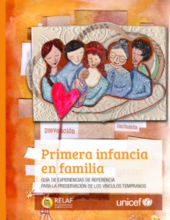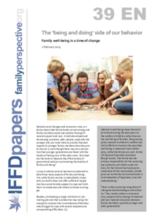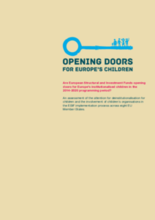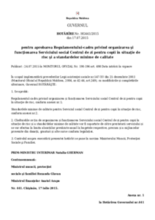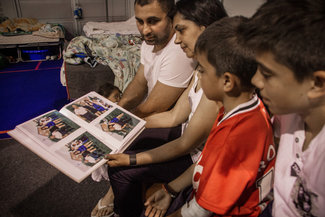

Displaying 841 - 850 of 1075
This paper, presented at the XVI April International Academic Conference on Economic and Social Development in Moscow on 8 April 2015, outlines a research project analyzing ongoing foster care reform in Russia in the context of the country’s new family policies.
In this UNICEF blog post, the author, Benjamin Perks, describes the many detrimental effects of institutionalization on young children and infants. The author highlights the 2012 Call to Action to eradicate placement of children under 3 in large scale institutions in Central Asia and Central and Eastern Europe and the advances made since then in reducing the numbers of children in institutions in the region.
This one-page presentation outlines the research questions, data, methods, results, literature review, discussion and implications of a study that looked at the effects of a child’s relationship to head of household, age, and orphan status on the severity of discipline they receive in Ghana, Iraq, Costa Rica, Vietnam,and Ukraine.
A recent study from the Bucharest Early Intervention Project has revealed that children who were placed in institutional care have an increased risk of demonstrating behaviors associated with autism, such as impaired social communication, according to the article.
Esta Guía reúne una serie de programas, prácticas y políticas públicas que resultaron en la garantía del derecho a la convivencia familiar y comunitaria de niñas y niños en su primera infancia. En particular, se caracterizan por ser innovadoras o por haber obtenido buenos resultados en la protección y la restitución de este derecho. Las experiencias recopiladas abarcan programas, proyectos e iniciativas públicas, privadas o mixtas de fortalecimiento familiar, provisión de cuidados alternativos, y de reintegración familiar.
This paper provides a brief overview of basic family structures in EU countries and a description of family breakdown and its impact on children’s wellbeing.
This report is based on the outcomes of a survey addressed to eight National Coordinators of the Opening Doors campaign. It aims to assess the extent to which EU Member States have used ESIF to catalyse child care systems reform.
This article presents the findings of a 12-year study, conducted by Harvard University and Boston Children’s Hospital in the USA, that examined the effects of institutionalization on Romanian children’s brain development.
This article from the Migration Policy Institute examines the impact of labor migration on children who are left behind, from an economic and social lens, and with particular attention to gendered implications.
În scopul implementării prevederilor Legii asistenţei sociale nr.547-XV din 25 decembrie 2003 (Monitorul Oficial al Republicii Moldova, 2004, nr.42-44, art.249), cu modificările și completările ulterioare, Guvernul HOTĂRĂŞTE:


